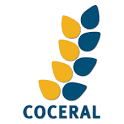|
|
| 31 jul 2018 |
04:25 |

|
COCERAL calls for legal certainty and regulatory coherence for New Plant Breeding Techniques
The European Court of Justice (ECJ) published on 25 July its judgment in case C-528/16, ruling that organisms obtained by directed mutagenesis, ie. those techniques that emerged after the adoption of the EU legislation on GMO are, in principle, subject to obligations of the GMO Directive.
|
|
Due to the intrinsic characteristics of trade in bulk commodities, taking into account regulatory approaches in other regions of the world is of paramount importance to prevent major trade disruptions. As several third countries jurisdictions do not intend to regulate directed mutagenesis as GMOs, such misalignment with key trading partners would constitute yet another trade barrier which will jeopardize essential EU imports of agricultural commodities needed for the food supply in Europe, will increase food prices, and introduce a serious handicap for the development of improved varieties for the EU farming sector, leading to a structural loss of competitiveness for EU agriculture.
COCERAL wishes to insist that regulatory coherence and legal certainty are critical for a well-functioning trade and supply of the EU food market and calls upon EU policy makers and Member States to take steps to establish a harmonized, science based legal framework for New Plant Breeding Techniques (NPBTs) and in particular directed mutagenesis.

|
|
|
|
